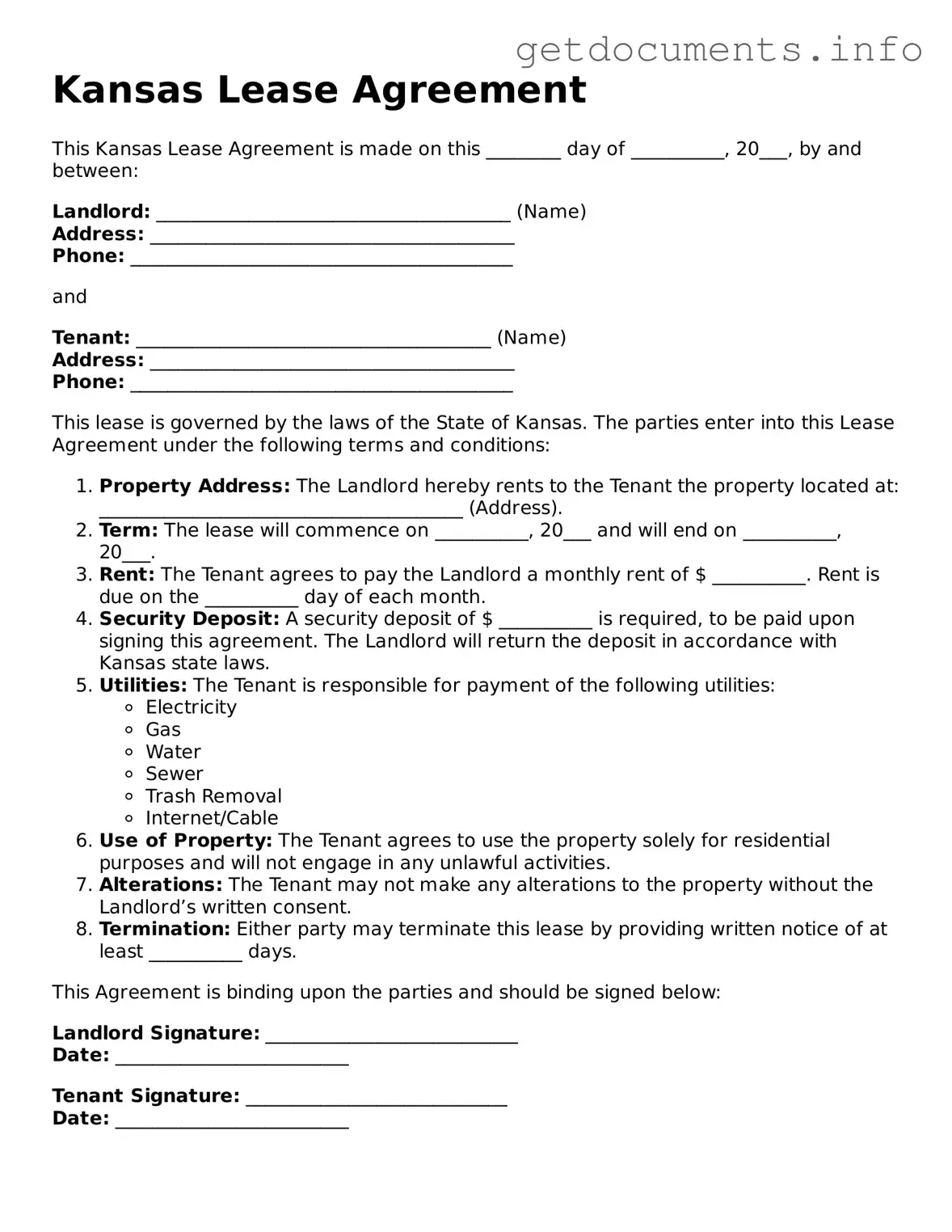Free Lease Agreement Template for Kansas
A Kansas Lease Agreement form is a legal document that outlines the terms and conditions between a landlord and a tenant for renting residential or commercial property. This agreement serves to protect the rights of both parties and ensures clarity regarding rental payments, property maintenance, and duration of the lease. Understanding this form is crucial for a smooth rental experience, so consider filling it out by clicking the button below.
Access Lease Agreement Editor

Free Lease Agreement Template for Kansas
Access Lease Agreement Editor
Got places to be? Complete the form fast
Fill out Lease Agreement online and avoid printing or scanning.
Access Lease Agreement Editor
or
⇩ PDF File
